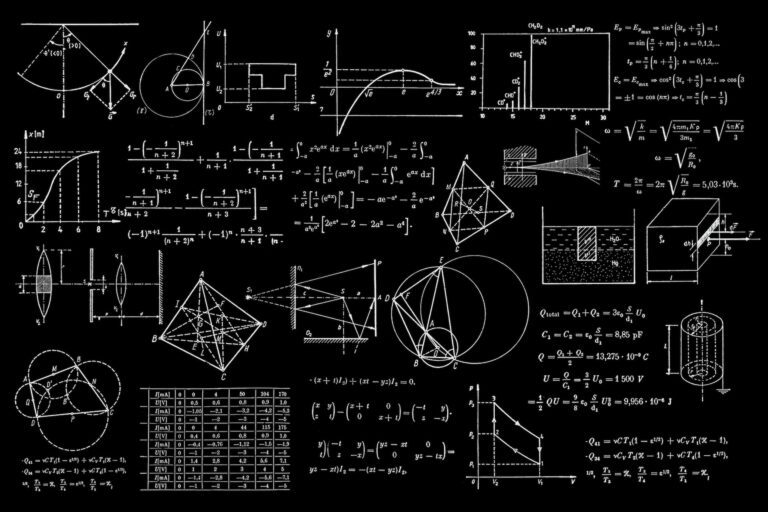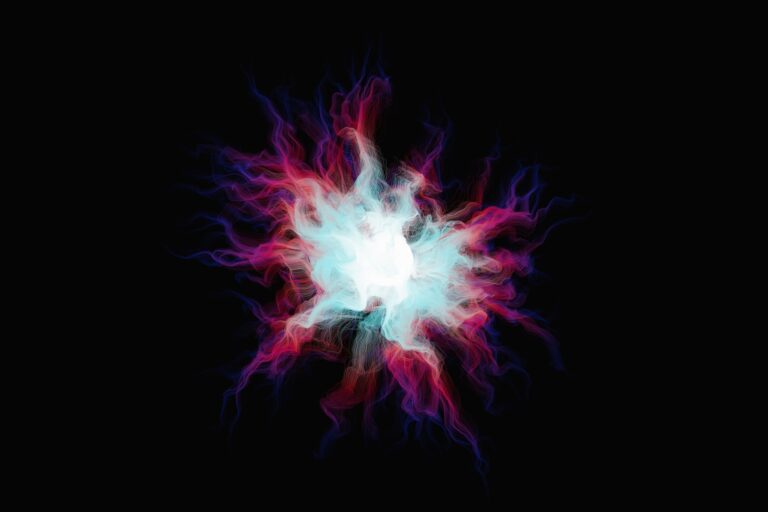Department of Chemistry, Physics, and Atmospheric Sciences – PHYSICS
College of Science, Engineering, and Technology
If you have ever wondered scientifically, “why” something is the way it is, or “how” can something exist or behave the way it does, then you’ve entered the realm of physics. Physics is the most fundamental of all sciences, and is the study of nature that is all around us. Physicists try to understand the most basic laws that govern the behavior of nature.
Full Course Descriptions
Back to Physics Home Page | Back to Previous Page
Department of Physics, Atmospheric Sciences, and General Science
Office: Just Hall of Science Building
Theory Lab
PHY 151, PHY 198, PHY 199,
PHY 201, PHY 202, PHY 211, PHY 212, PHY 216, PHY 241, PHY 242, PHY 251, PHY 261, PHY 298, PHY 299 PHYL 201, PHYL 202, PHYL 212, PHYL 211
PHY 330, PHY 311, PHY 312, PHY 328, PHY 329, PHY 342, PHY 351, PHY 361, PHY 362, PHY 380, PHY 398, PHY 399
PHY 401, PHY 411, PHY 412, PHY 422, PHY 410, PHY 430, PHY 431, PHY 433, PHY 441, PHY 442, PHY 461, PHY 480, PHY 449, PHY 498, PHY 499
PHY 151 (3) Introduction to Physics.
An introduction to some of the basic concepts of physics, intended both for nonscience majors seeking scientific literacy and also for students who desire some experience in physics before taking Physics 201 or 211. This course satisfies the Core II physical science requirement.
TOP
PHY 198, 199, 298, 299, 398, 399, 498, 499 (0.5 each) Physics Seminar.
Presentation and discussion of current physics topics and research by students, faculty and visiting speakers. All physics majors are expected to participate.
TOP
PHY 201 (3) Basic Physics I.
Prerequisites: MATH 111 and 115, or MATH 118. Introduction to mechanics, wave motion, sound, and heat for science majors whose curricula may not include calculus.
TOP
PHYL 201 (1) Basic Physics Laboratory I.
Co-requisite: PHY 201. Weekly laboratory experiments in the areas covered in PHY 201.
TOP
PHY 202 (3) Basic Physics II.
Prerequisite: PHY 201. A continuation of Phy 201. Introduction to electricity, magnetism, optics, and modern physics.
TOP
PHYL 202 (1) Basic Physics Laboratory II. Prerequisite: PHYL 201. Corequisite: PHY 202. Weekly laboratory experiments in the areas covered in Phy 202.
TOP
PHY 211 (4) General Physics I.
Prerequisite: MATH 231. Introduction to mechanics, wave motion, sound, and heat. Calculus-based and more intensive than Phy 201.
TOP
PHYL 211 (1) General Physics Laboratory I.
Corequisite: PHY 211. Weekly laboratory experiments in the areas covered in Phy 211.
TOP
PHY 212 (4) General Physics II.
Prerequisites: PHY 211, MATH 232. A Calculus-based continuation of Phy 211. Introduction to electricity, magnetism, optics, and modern physics.
TOP
PHYL 212 (1) General Physics Laboratory II.
Prerequisite: PHYL 211. Corequisite: PHY 212. Weekly laboratory experiments in the areas covered in Phy 212.
TOP
PHY 216 (3) Modern Physics.
Prerequisite: PHY 212. An introduction to relativity and quantum effects including atomic structure and spectra, nuclear structure and reactions, and high-energy physics.
TOP
PHY 241 (4) Introduction to Astronomy.
An introductory survey of the solar system, stars, nebulae, and galaxies, with discussion of cosmology, life in the universe, and the space program. Includes weekly observatory Sessions. This course satisfies the Core II physical science requirement.
TOP
PHY 242 (4) Life in the Universe.
An examination of the conditions necessary for the existence of life in the universe and of the possibilities for the detection of such life and for communication with intelligent life. Relevant basic astronomy is included.
TOP
PHY 251 (4) Cosmology for nonscientists.
A study of the structure, origin, and evolution of the universe. Includes relevant basic astronomy and discussion of fundamental observations.
TOP
PHY 261 (2) Astrophotography.
An introduction to photographic principles and basic observational techniques in astronomy. Emphasis is on information for the amateur, but professional observations are also discussed.
TOP
PHY 311 (3) Theoretical Mechanics I.
Prerequisites: PHY 211, MATH 232. A modern treatment of classical mechanics including single-particle dynamics, oscillations, gravitation, the calculus of variations. Lagrangian and Hamiltonian dynamics, and central-force motion.
TOP
PHY 312 (3) Theoretical Mechanics II.
Prerequisite: PHY 311. A continuation of Phy 311 including study of systems of particles, noninertial reference frames, rigid-body dynamics, coupled oscillations, continuous systems, the wave equation, and the special theory of relativity.
TOP
PHY 328 (4) Digital Electronics for Scientists.
Prerequisite: PHY 212. A introduction to digital electronics and microcomputers including digital logic, programming and interfacing microcomputers, and applications of microcomputers to projects of interest to the physical scientist.
TOP
PHY 329 (4) Analog Electronics for Scientists.
Prerequisite: PHY 212. An introduction to analog electronics including DC and AC circuit analysis, source transformations, semiconductor devices, mathematical models of semiconductor devices, and a survey of the use of modern linear integrated circuits in applications of interest to the advanced physical science student.
TOP
PHY 330 (3) Methods of Experimental Physics I.
Prerequisite or Corequisite: PHY 216. Primarily a laboratory course, comprised of lectures and advanced experiments in electronics, optics, modern physics, and astronomy.
TOP
PHY 342 (3) Optics.
Prerequisite:PHY 216. A lecture course on modern optics covering geometrical, wave, and quantum optics, and modern optical technology, with applications to atomic spectroscopy and lasers.
TOP
PHY 351 (3) Thermodynamics and Statistical Physics.
Prerequisite: PHY 212. A study of equations of state, the laws of thermodynamics, thermodynamic potential, statistical thermodynamics, kinetic theory, and elementary statistical mechanics.
TOP
PHY 361 (3) Mathematical Methods of Physics and Chemistry I.
Prerequisite: PHY 212. An introduction to advanced techniques of applied mathematics used in physics and chemistry, including applied linear algebra, ordinary differential equations, and Laplace's equation.
TOP
PHY 362 (3) Mathematical Methods of Physics and Chemistry II.
Prerequisite: PHY 361. A continuation of Physics 361, including vector calculus, Fourier series and orthogonal expansions, Fourier integrals, complex variables and conformal mappings, complex integration, and the heat and wave equations.
TOP
PHY 380 (1-6) Independent Study.
Prerequisite: Approval of instructor. Investigation of a topic selected by the student in consultation with the faculty. This course may be repeated for credit.
TOP
PHY 401 S (3) Physics for Secondary Teachers.
Prerequisite: PHY 212. Examination of various text and laboratory materials which are available for high school physics courses. Discussion of the goals of the high school physics course and consideration of some of the difficulties which are likely to be encountered.
TOP
PHY 410 (3) History of Physics.
Prerequisite: PHY 216. Survey of the historical development of physics based on the study of classic papers and scholarly works.
TOP
PHY 411 (3) Electromagnetic Theory I.
Prerequisite: PHY 362. A study of static electric and magnetic fields including Gauss' Law, Ampere's Law, and the solution of Laplace's equation.
TOP
PHY 412 (3) Electromagnetic Theory II.
Prerequisite: PHY 411. A continuation of Physics 411 including study of time-dependent fields, Maxwell's equation, electromagnetic waves and radiation.
TOP
PHY 422 (3) Quantum Mechanics.
Prerequisites: PHY 216 and 362. An introduction to quantum mechanics, wave functions, and the Schrodinger equation, including solution of the Schrodinger equation for a box, barrier, square well, harmonic oscillator, and the hydrogen atom.
TOP
PHY 430 (3) Methods of Experimental Physics II.
Prerequisite: PHY 330. A continuation of Physics 330. Selected advanced experiments in electronics, optics, modern physics, and astronomy.
TOP
PHY 431 (3) Atomic and Nuclear Physics.
Prerequisite: PHY 422. A lecture course comprising a study of the properties of atoms and nuclei, a review of classic experiments, and an investigation of related applications of quantum mechanics.
TOP
PHY 433 (3) Solid State Physics.
Prerequisite: PHY 216. An introduction to solid state physics including crystal structures, electron and mechanical waves in crystals, semiconductors, electric and magnetic properties of solids, and point defects in crystals.
TOP
PHY 441 (4) Solar System Astronomy.
Prerequisite: PHY 212. An introduction to the solar system intended for mathematics and science majors and including the physics and chemistry of the sun, plants, moons, comets, and the interplanetary medium, life on the planets, and artificial satellites.
TOP
PHY 442 (4) Stellar and Galactic Astronomy.
Prerequisite: PHY 212. An introduction to the stellar and galactic astronomy intended for mathematics and science majors and including the physics and chemistry of the stars and the interstellar medium, star and galaxy formation, and basic cosmology.
TOP
PHY 449 (3) Special Topics in Physics.
Prerequisite: Approval of instructor. Advanced specialized topic courses selected on the basis of faculty and student interest. This course may be repeated for credit.
TOP
PHY 461 (3) Computational Physics.
Prerequisite: PHY 362. A study of numerical and computational techniques for solving physical problems including using analytical and physical theory to simplify and approximate, writing algorithms and programs, and using commercial and other available software.
TOP
PHY 480 (1-6) Research Project.
Prerequisite: Approval of instructor. Supervised original research by the individual student on a problem selected in the consultation with the faculty. This course may be repeated for credit.
TOP
ABOUT THE PROGRAM
Physics allows you to study the forces that shape the fabric of nature and learn what the universe if made of and how it works.
You will receive a solid grounding in fundamental physics and have access to a wide range of elective courses including optics, particle and solid-state physics, nonlinear dynamics, astronomy and geophysics. Running experiments and engaging in faculty-led research develops your quantitative critical thinking skills, and you will gain the ability to use data to test and evaluate models, explanations, and methods.
LEARN BY DOING
In lab-based classes and with faculty-led research opportunities, you will learn to think like a physicist. Explore accelerator physics at CERN, or learn about the frontiers of space and time while searching for extrasolar planets and world-renowned observatories. Explore the mind-bending consequences of Einstein’s theory of gravity and curved space-time, or unlock the mysteries of our awesome Earth with field research opportunities. Become a science educator and make a difference in propelling P-12 STEM education in the 21st century. At Jackson State University, you are part of the process of creating new scientific knowledge.
“Challenging Minds, Changing Lives.”
APPLY YOUR KNOWLEDGE
Your time will be spent collecting and analyzing data or running experiments on state-of-the-art equipment – not solely sitting at desks.
CAREER OPPORTUNITIES
Physics majors have a plethora of career options after studying the mechanics of matter and understanding concepts such as optics, solid-state physics, particle physics, and much more:
| Technical Writer | Science Teacher | Forensic Scientist | Professor |
| Data Analyst | Research Analyst | Web Developer | Design Engineer |
| Systems Analyst | Research Engineer | Meteorologist | Research Scientist |
| Scientist | Application Developer | Product Development Engineer | Process Engineer |
| Radiation Safety Officer | Materials Engineer | Nuclear Engineer | R&D Engineer |
| Aeronautical Engineer | Electronics Engineer | Data Scientist | Quantitative Analyst |
RESEARCH
For many years, we have played a central role in new physics developments and advancements.
Want to learn more? Click below to view our advancements.
RESOURCES
PERSONNEL
READY TO JOIN?
For more information, please contact us at (601) 979-7012. We look forward to meeting with you and seeing how our program can help you achieve your goals.



